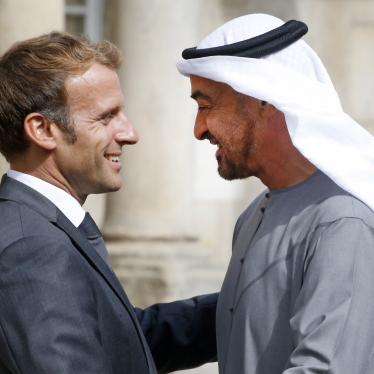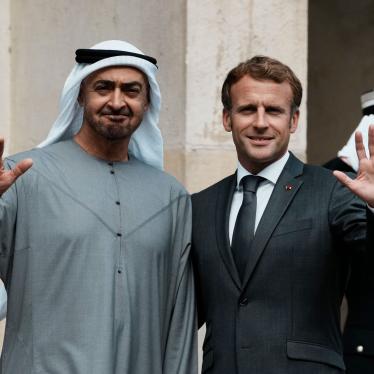“The [French] Republic is freedom of expression,” said President Francois Hollande on January 7 in reaction to the horrific attack against the satirical magazine Charlie Hebdo that left 12 people dead.
But is it really?
A wave of cases opened by the French judiciary over the past several days against people for allegedly “glorifying terrorism,” some of whom have already been summarily sentenced to imprisonment, shows the contradictions in France’s approach to the right to express opinions that offend, shock, or disturb.
The murders, which were undoubtedly a brutal assault on freedom of expression, shocked France to the core. Millions marched is solidarity with the victims and expressed their refusal to be silenced by violence, and the government stood strongly in defence of freedom of expression.
But on January 12, the Minister of Justice instructed prosecutors to adopt a “systematic, adapted and individualized” response, using the criminal law, to racist, anti-Semitic speech and speech “glorifying” terrorism. The instruction explicitly referred to the attacks of January 7 to 9 on Charlie Hebdo, police officers and people shopping in a kosher supermarket.
French law allows for people to be sentenced to up to five years in prison if they commit the broadly worded offenses of “inciting” or “glorifying” terrorism. A new counterterrorism law adopted in November 2014 increased the sentence to seven years if either offense is committed online. Many countries in Europe, including the United Kingdom and Spain, have similarly broad laws criminalising the glorification of terrorism.
According to media reports, the French judiciary had opened 69 cases of alleged “glorification of terrorism” and threats to commit terrorist acts by January 14. In some cases, people are alleged to have praised the attacks on social media, while others did so when they came into contact with police. Those under investigation include anti-Semitic comedian Dieudonné. Several people have already been sentenced to imprisonment following summary proceedings, others are under investigation and others have been detained pending trial.
Terrorism legislation allowing for summary trials and long prison sentences should not be used to prosecute speech acts that do not incite violence or for threats against police officers that should be dealt with as ordinary criminal offences. Its use is likely to have a chilling effect on freedom of expression in France, weakens its credibility as a country that stands up for freedom of expression and sets a dangerous example for governments that are quick to use counterterrorism laws to silence their critics.









